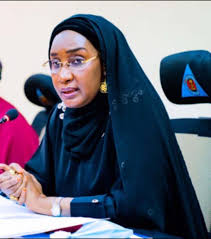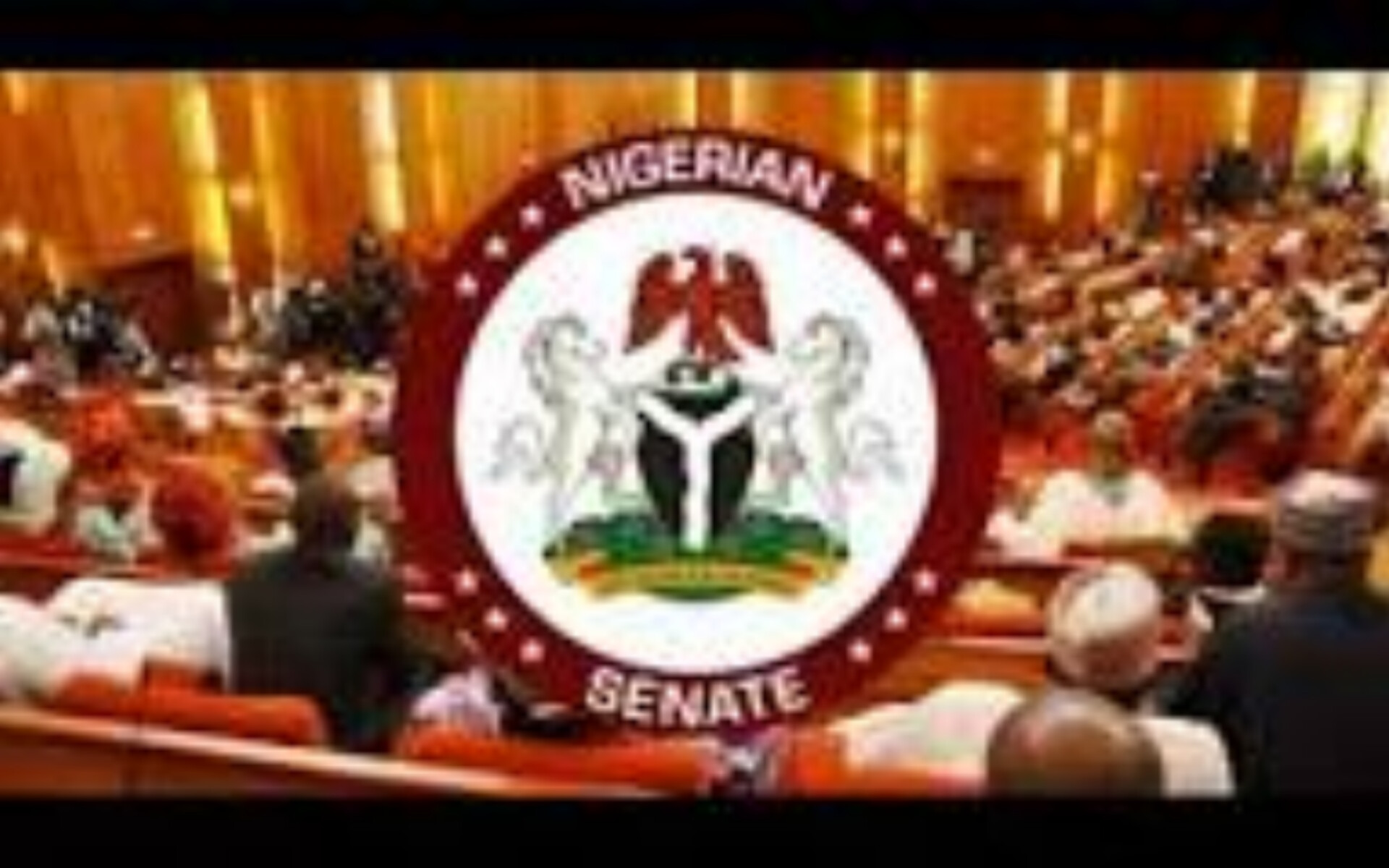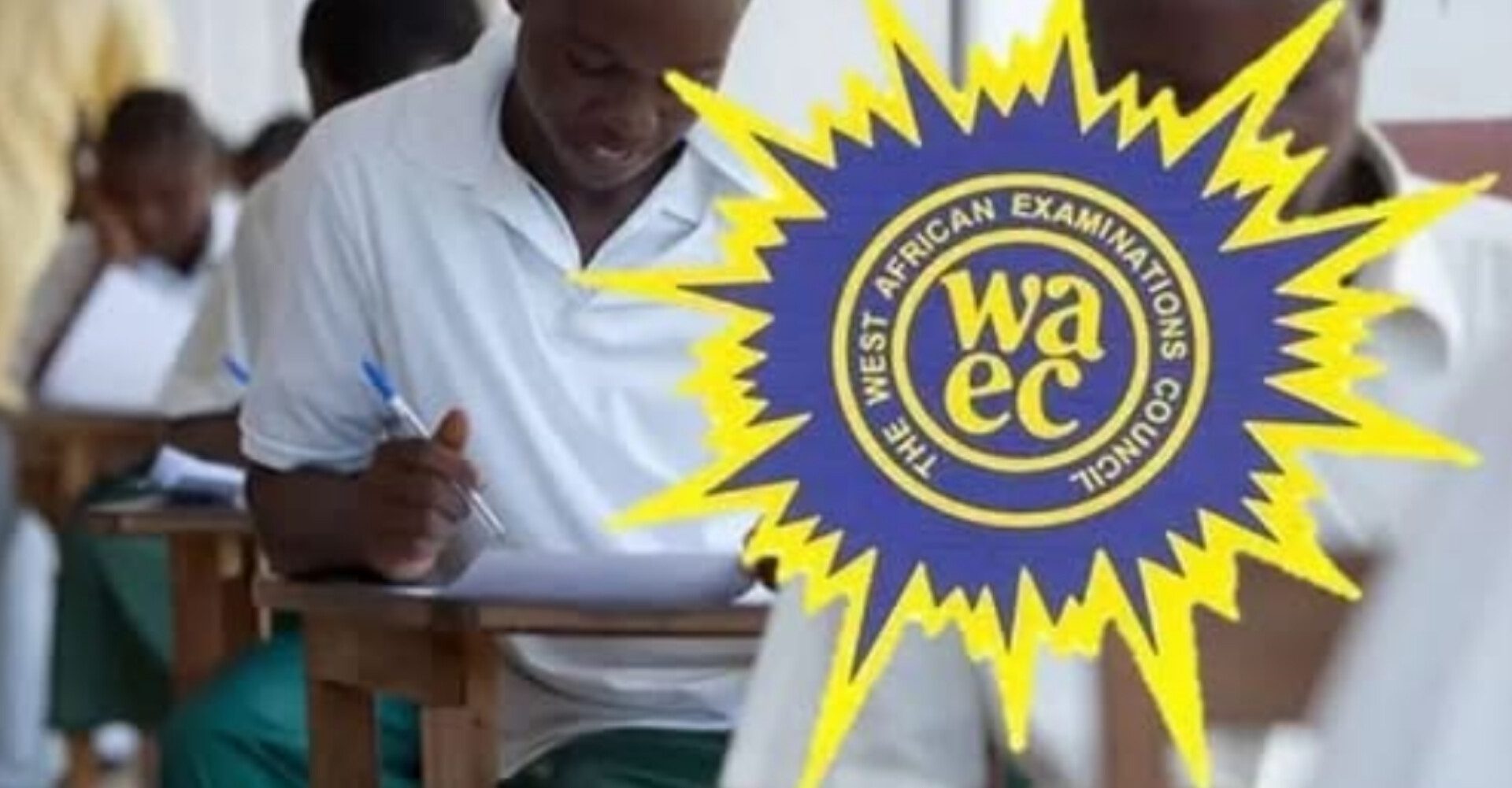***As Finance minister failed to appear
The Minister of Humanitarian Affairs, Disaster Management and Social Development, Sadiya Umar-Farouq, on Thursday, told Senators that the N206billion inserted in the ministry’s budget was meant for purchase of military equipment.
The Minister had disowned the money last week saying it was allegedly ‘inserted’ into the Ministry’s Budget by the Ministry of Finance.

The committee had requested the two Minister’s to appear to clear the air on the controversial N206b however, while the Humanitarian minister appeared with her permanent secretary, the Finance minister failed to turn up.
Umar-Farouq spoke when she appeared before the Senate Committee on Special Duties chaired by Senator Yusuf Yusuf (APC – Taraba Central).
At the resumed budget defence on Thursday, when asked for further clarification on the matter by the lawmakers, Umar-Farouq said: “On the N206billion, when we saw it, we didn’t understand what it was meant for because the explanation wasn’t clear.
“If you put N206billion in Humanitarian Affairs ministry’s budget and the narration is purchase of military equipment, definitely something is wrong.
“That’s why I said I’m not going to say anything about it until we get clarification from the Ministry of Finance.
“If we had requested for N206billion
for a different project and then in the Appropriation Bill, it is reading something else, we will not own it.
“When pressed further by the lawmakers whether she requested the N206billion for another project, but it came with another narration, she simply said, “It is not exactly that way, and that’s why we need that clarity from Finance ministry”.
However, the Minister of Finance, Mrs. Zainab Ahmed had on Wednesday, cleared the air on the allegations of N206 billion inserted in the 2023 budget of the Ministry of Humanitarian Affairs, Disaster Management, and Social Development.
In a special meeting with the House of Representatives Committee on Appropriation which invited her alongside the Director General of the Budget Office, Ben Akubeze, and the affected minister, Sadiya Umar Farouq, Ahmed said that there was a wrong coding of the projects.
She said the monetary provision was made for the social safety nets projects, stressing that it was an 800 dollars project that has been approved by the board of the world bank and the Federal Executive Council.
According to her, the loan was fully negotiated by the government of Nigeria with the full involvement of the Ministry of Humanitarian Affairs.
Ahmed had said: “The 2023 Budget proposal has been prepared with the utmost sincerity of purpose and in line with established regulations and procedures.
“Over the past week, there has been a lot of misinformation in the media regarding certain provisions in the 2023 budget totaling N423.8billion.
“The expenditures questioned are mostly related to provisions for multilateral and bilateral loan-funded projects.
“It is instructive that all these projects are now the subject of controversy and were included in the budgets of the MDAs which were transmitted to the supervising Ministers for their review and feedback on 4 October 2022 before the presentation to both the FEC and NASS.
“Until these recent controversies, none of the concerned MDAs raised any issues on the projects with our ministry.
“Traditionally, Multilateral/Bilateral financial institutions provide project-tied loans to the Federal government of Nigeria.
“These loans were previously not fully captured in the FGN budget; only the provisions for counterpart funds & debt service were included in the FGN budget.
“So, in 2021, we realized there was a gap that was underreporting and in 2021 and 2022 we started making this report.
“The sum of N206,242,395,000 was provided in the budget of the Humanitarian Affairs, Disaster Management and Social Development to provide for the social safety need project.
“This is an 800 dollars project that has been approved by the board of the world bank and approved by the federal executive council. This loan was fully negotiated by the government of Nigeria with the full involvement of the ministry of humanitarian affairs.
“This project is domiciled in the FAHADM&SD Headquarters. The World Bank is the funding source for the project, with the projected drawdown of $473,500,000, which is equivalent to N206,242,395,000, using the N435.57/USD exchange rate applicable to the 2023 budget.
“This project was correctly described in the submission from IERD for the 2023 budget, but regrettably, a wrong code was inadvertently used in the process of inputting it, which resulted in it being captured as Purchase of Security Equipment in the GIFMIS Budget Preparation System (BPS), which has a limited dropdown range of project descriptions/codes.
“The same project was correctly captured in the 2022 budget of the FAHADMSD in the amount of N12,304,500,000 [ERGP1180310], based on the projected drawdown of $30m at N410.15/$ 2022 budget exchange rate.”
Ahmed also said that the same situation occured in the ministries of Defence and Power respectively, ruling out wrongful insertions.
“The Honourable Minister of Defence wrote to Mr. President requesting the immediate release of $1,363,880.40 and N158,928,045.37 to implement Phase 1 of the project. HM-MoD also requested the sums of $12,274,923.60 and N11,946,311,375.18 to implement Phases 2 and 3 of the project, all of which Mr. President graciously approved.
“Further to Mr President’s approval, 50% of the requirement for Phases 2 & 3, amounting to N8,600,000,000 (using the exchange rate of N435.57/USD), has been included in the 2023 budget proposal of the MoD.
“The 2023 proposed budget for the FMoP includes a total of N195,465,151,790.65 MBPL with a breakdown as follows:
“Zungeru Hydroelectric Power Project: funded by Export-Import Bank of China. Amount: USD175,757,149.92, which is N76,554,541,790.65.
“Power Sector Recovery Operation (PSRO); funded by World Bank. Amount: USD 162,000,000, which is N70,562,340,000.00.
“Nigeria Electrification Project (NEP) to be executed by the Rural Electrification Agency (REA), funded by World Bank and AfDB. Amount: USD55,000,000, which is N23,956,350,000.00.
“The Nigeria Electricity Transmission, to be executed by Transmission Company of Nigeria (TCN)): funded by the World Bank. Amount: USD56,000,000, which is N24,391,920,000.000.
“The total projected drawdown for the four projects is USD448,757,149, which is N195,465,151,790 at N435.17/$.
“The Federal Ministry of Education (FME) – NUC. The amount in question here relates to the 2022 budget, during which it had a projected loan drawdown of $30m equivalent to N12,304,500,000 (at exchange rate of N410.15/USD). The issue relating to this arose from the NASS committee’s review of FME’s 2022 budget implementation.
“The project is the “Second Africa Higher Education Centres of Excellence for Development Impact Project” and the financier is the World Bank.
“For 2023, the amount captured for this project and the Sustainable Procurement, Environmental and Social Standard Enhancement Project is N26,134,200,000 (60 million US Dollars at 345.57 per $; both are World Bank funded projects.
“The current issues would have been easily clarified between the respective MDAs and the FMFBNP had the affected agencies followed the established budget processes.
“The proposed 2023 budget for each ministry was circulated for review and feedback, then presented at the Federal Executive Council (FEC) before it was submitted to NASS by President Muhammadu Buhari.
“It is noteworthy that the total amount of multilateral/bilateral loan-funded projects included in the 2023 budget is N1,771,404,182,322, involving a total of 14 implementing ministries.
“The aggregate projected multilateral/bilateral loan drawdown and expenditure of N1,771,404,182,322 is shown on Lines 271 and 301 of the MTEF/FSP approved by FEC and presented to NASS. It is also shown on Lines 182 – 195 on page 12 of the 2023 Appropriation Bill.
“So far, no issues have been raised in relation to the multilateral /bilateral loan-funded projects by the other ministries.
“It is evident that there are internal coordination issues between the PIUs in some MDAs and the CEOs/Accounting officers of the implementing ministries. We will be taking necessary actions to ensure that this is addressed going forward.
“Finally, let me state clearly that the allegation that the FMNBNP “padded” the budgets of the affected MDAs by inserting the projects in question makes absolutely no sense.
“If the projects are in the budgets of these MDAs, the FMBNP cannot procure them, as their procurement can only be handled by the concerned MDAs.
“Specifically, for multilateral/bilateral funded projects, the PIUs are domiciled in the designated implementing MDAs, and the lenders will not deal with any other agency, including FMBNP, on their procurements”.



